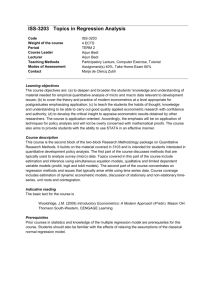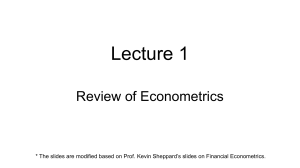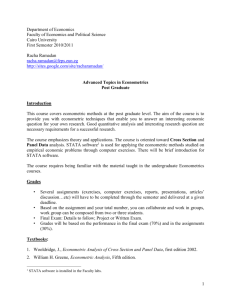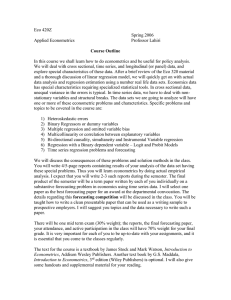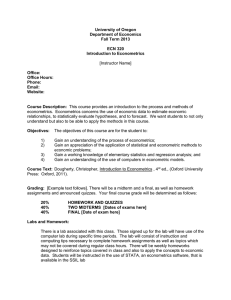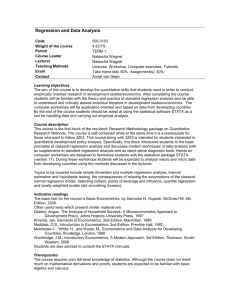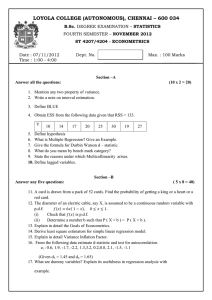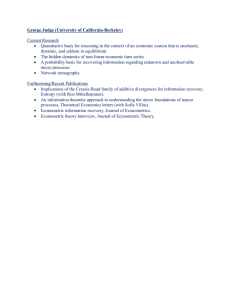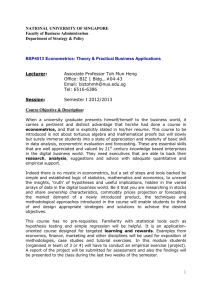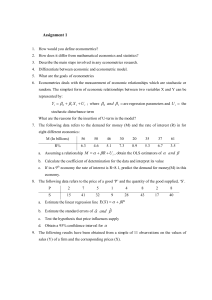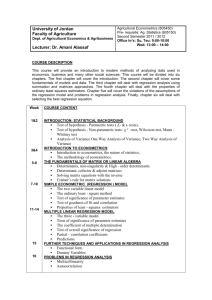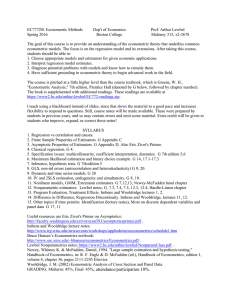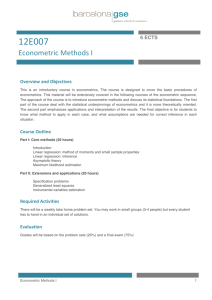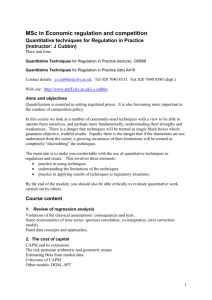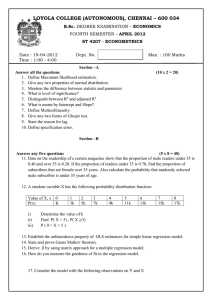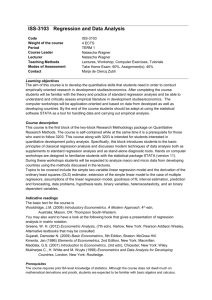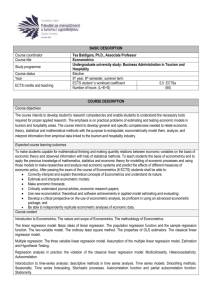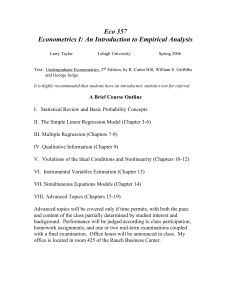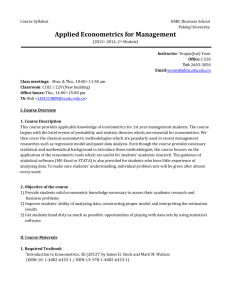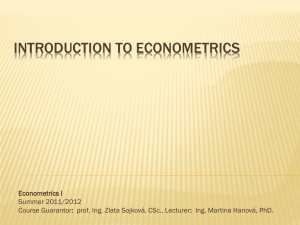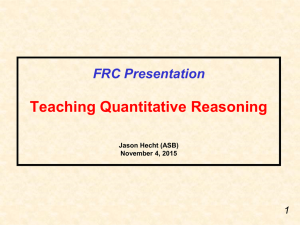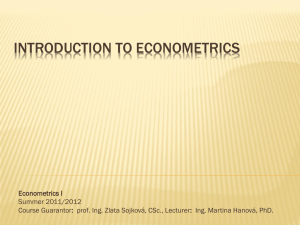Topics in Regression Analysis
advertisement
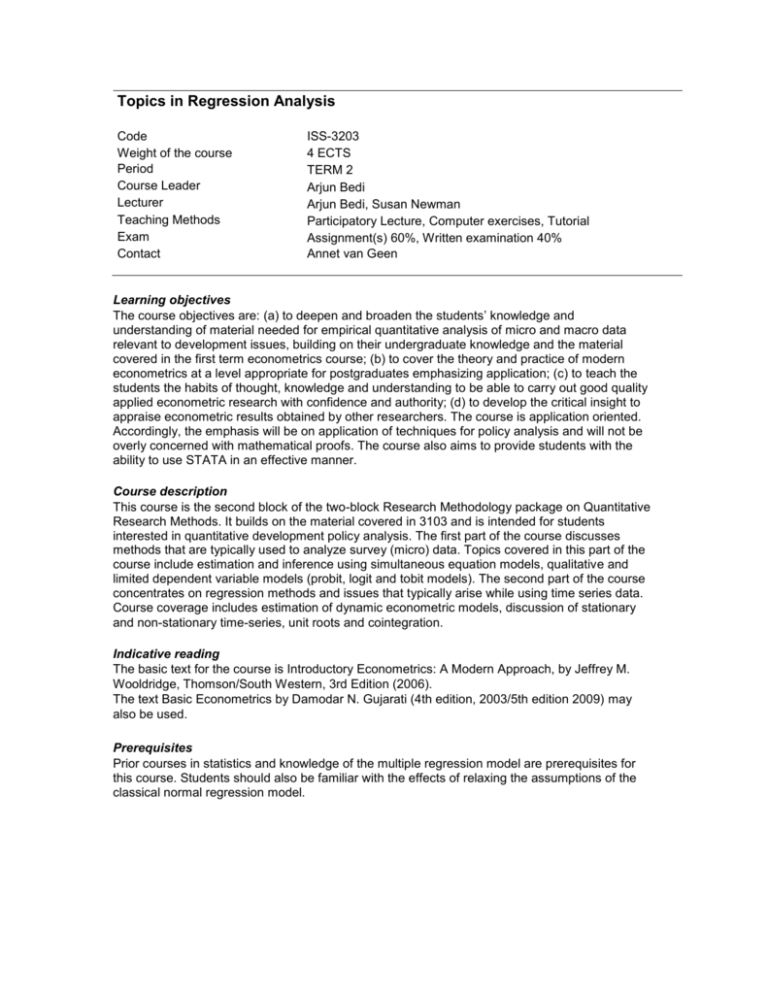
Topics in Regression Analysis Code Weight of the course Period Course Leader Lecturer Teaching Methods Exam Contact ISS-3203 4 ECTS TERM 2 Arjun Bedi Arjun Bedi, Susan Newman Participatory Lecture, Computer exercises, Tutorial Assignment(s) 60%, Written examination 40% Annet van Geen Learning objectives The course objectives are: (a) to deepen and broaden the students’ knowledge and understanding of material needed for empirical quantitative analysis of micro and macro data relevant to development issues, building on their undergraduate knowledge and the material covered in the first term econometrics course; (b) to cover the theory and practice of modern econometrics at a level appropriate for postgraduates emphasizing application; (c) to teach the students the habits of thought, knowledge and understanding to be able to carry out good quality applied econometric research with confidence and authority; (d) to develop the critical insight to appraise econometric results obtained by other researchers. The course is application oriented. Accordingly, the emphasis will be on application of techniques for policy analysis and will not be overly concerned with mathematical proofs. The course also aims to provide students with the ability to use STATA in an effective manner. Course description This course is the second block of the two-block Research Methodology package on Quantitative Research Methods. It builds on the material covered in 3103 and is intended for students interested in quantitative development policy analysis. The first part of the course discusses methods that are typically used to analyze survey (micro) data. Topics covered in this part of the course include estimation and inference using simultaneous equation models, qualitative and limited dependent variable models (probit, logit and tobit models). The second part of the course concentrates on regression methods and issues that typically arise while using time series data. Course coverage includes estimation of dynamic econometric models, discussion of stationary and non-stationary time-series, unit roots and cointegration. Indicative reading The basic text for the course is Introductory Econometrics: A Modern Approach, by Jeffrey M. Wooldridge, Thomson/South Western, 3rd Edition (2006). The text Basic Econometrics by Damodar N. Gujarati (4th edition, 2003/5th edition 2009) may also be used. Prerequisites Prior courses in statistics and knowledge of the multiple regression model are prerequisites for this course. Students should also be familiar with the effects of relaxing the assumptions of the classical normal regression model.
